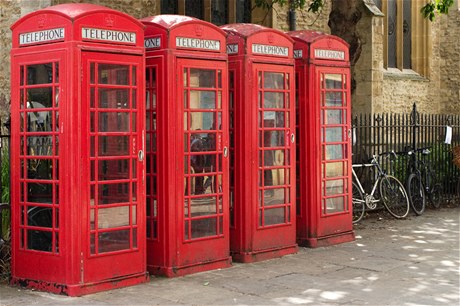Test obsahuje celkem 63 úloh, za které lze získat 63 bodů. Hranice úspěšnosti je 44 procent. Studenti budou mít na test 95 minut. U všech úloh a podúloh je právě jedna správná odpověď, za nesprávnou nebo neuvedenou odpověď se body neodečítají.
Další úlohy a nahrávky k poslechovým cvičením najdete na www.novamaturita.cz.
ČÁST 7 Přečtěte si článek, ve kterém autorka píše o své cestě na Borneo. Na základě informací v textu vyberte k úlohám 39-43 vždy jednu správnou odpověď A-D.
A journey to Borneo It all started fifteen years ago. I was working in a bank and I badly needed a rest so I went to Jersey for a holiday. Somebody in the hotel recommended I visit the Gerald Durrell Sanctuary. What really impressed me at the sanctuary were the orang-utans. I remember watching a mother and baby for over an hour - they really are the cutest animals. They looked straight into my eyes and their games really made me laugh.
When I got home, I read all the books I could get and watched TV documentaries about these incredible animals. I did everything I could to learn about them. And then, three years ago, I was looking for a winter holiday somewhere in Scotland when a leaflet from a travel agency came in the mail about watching orang-utans. It wasn’t exactly what I wanted, but they finally enabled me to spend two weeks with orang-utans in a nursery for orphaned babies at the Sepiok Rehabilitation Centre in Borneo. I completely forgot about Scotland at that moment.
Such an exotic place could be a shock for some visitors, but not for me because I had seen all those films and TV documentaries about the jungle and the wildlife. I knew what to expect, but what I wasn’t prepared for was the weather. Immediately after landing in Borneo we set off in jeeps to our camp. We were to stay deep in the jungle, but halfway there we were hit by a monsoon.
The road was collapsing, trees were blowing down and the bridge we crossed came down just behind us. We had to spend the night in the jungle.
The next day, we finally got to the camp and started our work. I was wondering what it was about orang-utans that really captured my heart and finally I found out the first time I held a baby. There was one orphan in the centre having problems learning to climb trees. His name was Jamil. Every day, I would take him out to a tree and help him practice like his mother would. By the end of the week, little Jamil held his hands out for me to pick him up and screamed - just like a baby would. I couldn’t help laughing. Even though we spoke different languages, the communication between us was amazing. The word orang-utan translates as ‘man of the forest,’ which is so true. Sometimes the orang-utans seem so human although in the wild they can be very dangerous. My whole life has changed since my trip to Borneo. I have started writing a book about orang-utans and I am planning my second trip to Borneo next year.
Úloha 39 Why did the author go to Jersey? Because she:
A) was very interested in orang-utans.
B) needed to have a break from her job.
C) wanted to watch wild animals in nature.
D) wanted to visit the Gerald Durrell Sanctuary.
Úloha 40 What did the author do as soon as she got home from Jersey?
A) She went for a holiday to Scotland.
B) She made a documentary about orang-utans.
C) She tried to find information about orang-utans.
D) She went to a travel agency to get some leaflets.
Úloha 41 What surprised the author when she arrived in Borneo?
A) the roads B) the jungle C) the visitors D) the weather
Úloha 42 What did the author do in the camp?
A) She taught a baby orang-utan to climb trees.
B) She started writing a book about orang-utans.
C) She taught orang-utans how to communicate.
D) She learned how to climb trees like orang-utans.
Úloha 43 What does the author say about Jamil?
A) He behaved like a child.
B) He laughed like a human.
C) He lived in the camp with his mother.
D) He was dangerous to people in the camp.
ŘEŠENÍ: 39B, 40C, 41D, 42A, 43A










